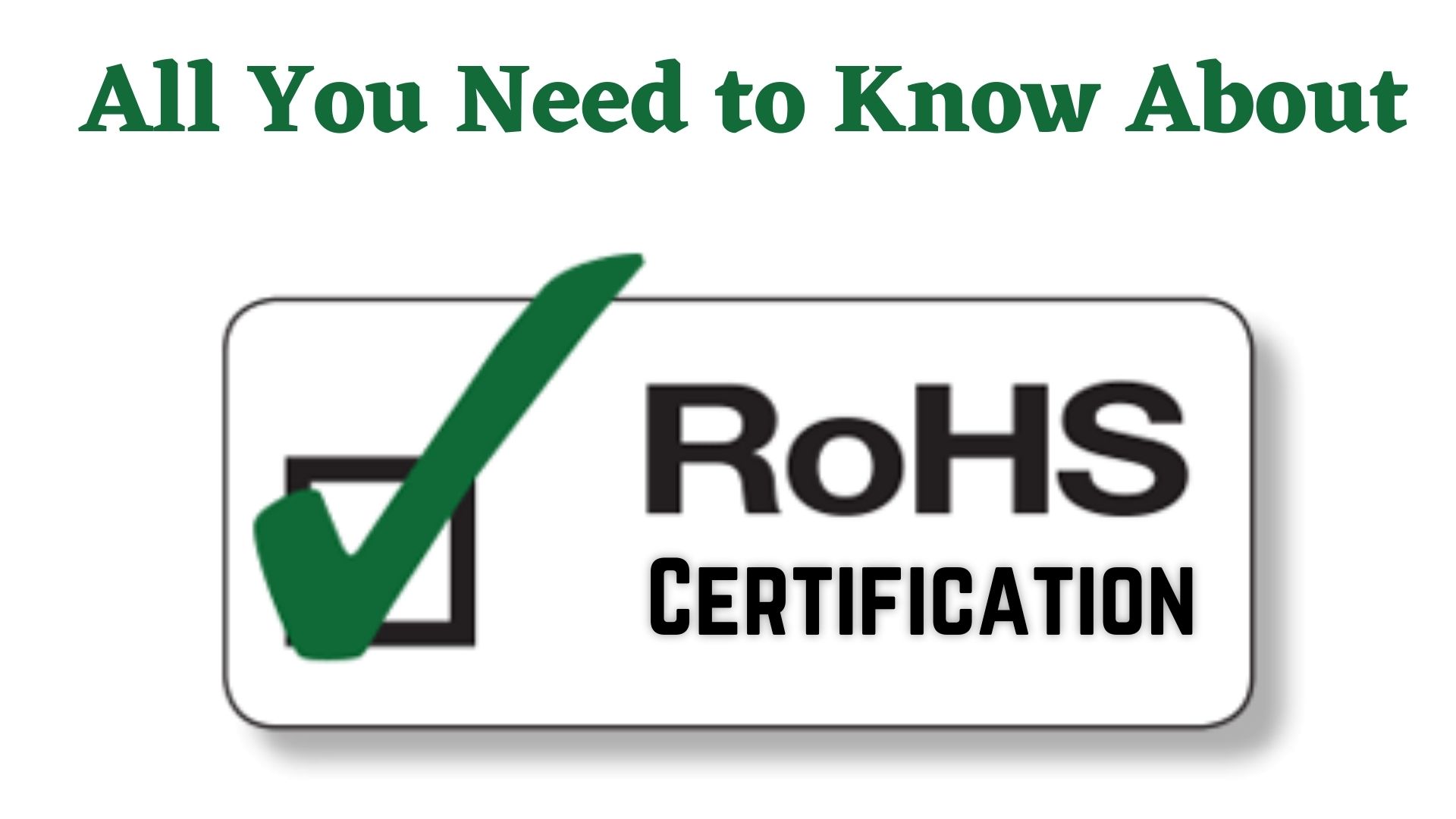RoHS Compliance Testing has become standard procedure for most manufacturers, sellers, distributors, and recyclers of electrical and electronic components or equipment sold or used in the European Union. The need for RoHS testing is
a result of the Restriction of Hazardous Substances Directive or RoHS Directive, which became effective on July 1, 2006. The Directive was drawn up in the European Union to protect human health and the environment from hazardous
substances by restricting the use of six hazardous chemicals in electrical and electronic products.
State-of-the-art Chemistry and Metallurgy Lab equipped with ultra-modern technology and sophisticated instruments like LC-ICPMS, GC-MSMS, spectroscopy, etc. can determine the level of the following first four substances restricted by RoHS in a component.
State of art chemistry Lab and Metallurgy Lab equipped with ultra-modern technology and sophisticated instruments like LC-ICPMS, GC-MSMS, spectroscopy, etc can determine the level of the following first four substances restricted
by RoHS in component material:
- Mercury (Hg): 100ppm
- Hexavalent Chromium (Cr (VI)): 1000 ppm
- Cadmium (Cd):100ppm
- Polybrominated Biphenyls (PBB):1000 ppm
- Lead (Pb) : 1000ppm
- Polybrominated Diphenyl Ethers (PBDE):1000 ppm
- Bis(2- Ethylhexyl) phthalate (DEHP):1000ppm
- Benzyl butyl phthalate (BBP): 1000ppm
- Dibutyl Phthalate (DBP): 1000ppm
- Disobutyl phthalate (DIBP): 1000ppm
Who can Apply
All manufacturers, either of Indian or foreign origin can apply for the CDSCO licence.In case of foreign manufacturer license will be granted to the manufacturer and the Indian counterpart of the manufacturer
will act as it’s Indian Representative. The Indian representative of the manufacturer must have a valid state drugs license under Form 20-B/21-B or Form 42 ( applied under Form 41 ) as per the latest guidelines released by CDSCO.
SClassification of medical devices as per regulations:
All types of medical devices are divided into 4 classes by the Medical Device Rules 2017, in 4 main categories, namely
1. Class A ( least risk )
2. Class B ( Moderate risk )
3. Class C ( Moderate to high risk )
4. Class D ( High risk )
Class A products are further divided into 2 categories to ascertain if CDSCO license or
CDSCO registration is applicable on the product:
a.) Class A ( non sterile and non measuring ) products come under registration scheme.
b.) Class A ( Sterile or measuring ) products require license.
This brings us to the conclusion that products which are under class A ( sterile or measuring ), Class B, Class C and Class D require a license from CDSCO.
Vital Documents Required for :
A.) CDSCO registration for Class A products ( non-sterile and non-measuring )
1. Drugs license of importer ( Required only for foreign manufacturer )
2. Free sales certificate ( Required only for foreign manufacturer )
3. ISO certificate ( Required only for foreign manufacturer )
4. List of products to be registered.
5. Basic details about the product ( example: storage temperature, shelf life, model number, etc.) , etc.
B.) Class A ( sterile or measuring ), Class B, Class C and Class D
1. Plant Master File ( PMF )
2. Device Master File ( DMF )
3. Manufacturing process flowchart.
4. Labels and user manual.
5. Design verification and validation.
6. Stability validation data.
7. Challan
of the government fee paid, etc.
Process for CDSCO online registration for Class A products ( non-sterile and non-measuring )
- Generation of login Credentials.
- Registration of Indian / foreign manufacturer
- Registration of importer ( in case of import only )
- Addition off product details
- Submission of details to CDSCO
- Grant of registration.
Timeline : CDSCO registration
process will take 1 day after the documents are submitted to us.
Validity : Validity of CDSCO online registration is perpetual i.e. no end date and requires no renewal.
Note : After the registration is completed, a unique file number is generated, which has to be mentioned on the product / packaging, in case of registration there is no certificate
Process for CDSCO license :
- Identifying the class of the medical device.
- Making groups as per the guidelines mentioned as per CDSCO guidelines.
- Creation of login credentials for the manufacturer.
- Collection of documents from the overseas manufacturer.
- Collection of documents from Indian importer.
- Checking and vetting of documents as per the rules.
- Payment of government fees.
- Submission of Application online.
- Clearing of queries ( if any )
- Audit of the firm.
- Clearing of queries ( if any ) after the audit.
- Grant of license
- Generation of CDSCO certificate.
Timeline : Approx 6-8 weeks after submission of application.
Validity : It is granted for 5 years initially and has to be renewed after that by paying the government fees.
Note: 1.) In case of CDSCO import license, AUDIT OF THE FOREIGN MANUFACTURER IS NOT CONDUCTED, and rest of the procedure remains the same.
2.) License number mentioned on the CDSCO registration certificate has to be mentioned
on the products / packaging.
3.) Test license is also required in case of Indian manufacturers.
Role of Sun Consultants & Engineers as CDSCO license consultants:
As CDSCO registration
consultants, our job is to ensure that the tiring procedures that we have listed above become a cake-walk for you. Right from the beginning i.e. from the stage of collection of documents from the foreign manufacturers or preparation
of documents for the Indian manufacturer and following up with the department for grant of license is under our scope.
We are one of the most experienced CDSCO
consultants in the field of medical products,we provide apex quality of services possible to all our national and international clients.



